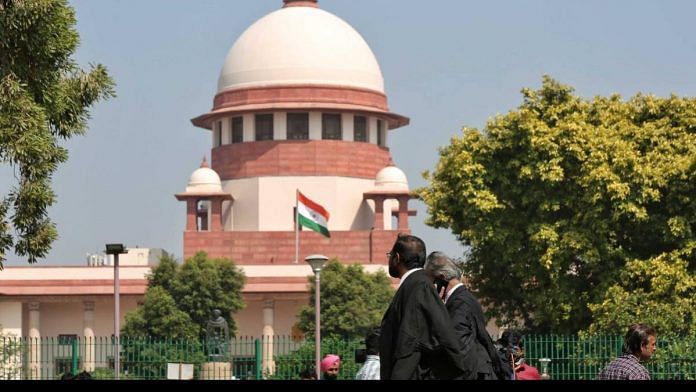
Thank you dear subscribers, we are overwhelmed with your response.
Your Turn is a unique section from ThePrint featuring points of view from its subscribers. If you are a subscriber, have a point of view, please send it to us. If not, do subscribe here: https://theprint.in/subscribe/
The legal battle of Shiv Sena versus Shiv Sena has created an unprecedented turmoil within Maharashtra. Participants in social media and WhatsApp university are posting irresponsible and acerbic comments against the judicial system. Legal experts appearing on news channels are adding to the confusion. The purpose of this article is not go into the legal intricacies but to examine interplay between the Anti-defection Law and the purported morality of our political class.
The purpose of the Anti-defection Law enacted in 1985 was ostensibly to prevent unprincipled defections and stop the culture of ‘Ayaa Ram Gaya Ram’. However, the legislation controversially provided that Speaker/Chairman of a house shall have absolute powers to decide on disqualification of a member and his/her verdict could not be challenged in a court of law. In a landmark judgement in ‘Kihito Hollohan Case (1992) the five judges Constitutional Bench, headed by the then CJI Justice M.N. Venkatachaliah , in a 3 -2 verdict, confirmed the constitutionality of the enactment and allowed speakers/ chairman to decide on disqualifications, but that would be subject to a limited judicial review. The majority judgement declared that speakers/ chairman “ hold a pivotal position in the scheme of Parliamentary democracy and are guardians of the rights and privileges of the House”, whereas the minority judgement highlighted the inherent conflict of interest in the role of speakers and stated that “ speaker being an authority within the House and his tenure being dependent on the will of majority therein, likelihood of suspicion of bias could not be ruled out.” Subsequent political developments have regrettably validated the apprehensions expressed in the minority judgement. Speakers have often behaved in an outright partisan manner and have blatantly corrupted the judicial process that was entrusted to them with high hopes and expectations.
In 2003, the law was modified by disallowing a split and only merger with some other party by not less than two thirds of the members protected them from disqualification. The dubious logic of disallowing splits and allowing mergers is beyond comprehension. It implies that splitting away of a large group constituting at least two thirds of membership from the originally party is constitutionally immoral, but it is not immoral if they merge with some other party.
Disqualification of dissenting members is justified claiming that members get elected only because they are nominated by his/her party. In reality, voters never disclose reasons why they voted in favour of a particular candidate. Individual popularity and merits of a candidate also count when voters cast their votes in his/her own favour. Though the multi-party system offers many advantages , the hollow premise that electoral success is dependent on party-affiliations alone is not convincing at all. The purpose of the anti-defection enactment is to protect the multi-party political system and render stability to governments ruled by various parties. However, our political parties are mostly dominated by dynasties and personality cults. The will of one person or dynasty runs supreme within a party and there is no room for inner-party democracy or criticism of the top leadership. This is not democracy but a delusion of democracy. Political leaders want anti-defection law not because they respect high constitutional morality but because it helps them to perpetuate their hold over a political party.
“ Dissent is the safety valve of democracy”- the Chief Justice of India, Chandrachud famously said this in one of his judgements. The anti-defection law is ostensibly aimed to promote democracy but real intent is to stifle internal dissent. Thus, safety valves are missing and this is likely to result in explosive situations, as it happened in Maharashtra where 39 out of 55 members of Shiv Sena expressed lack of confidence in their party leadership and asserted that they and not the Thackerays are the real Shiv Sena. If our politicians are so intent on preserving and strengthening the multi-party system, let them opt for the proportional representation system. However, that would amount to formation of coalition governments and accepting unpalatable political compromises. But leaders addicted to uncontrolled and unchallenged power won’t accept political uncertainties that would encourage dissent in their own party. This is why in India political hypocrisy has prevailed and constitutional morality has suffered.
These pieces are being published as they have been received – they have not been edited/fact-checked by ThePrint.
Also read: SubscriberWrites: Digital Public Infrastructure and the future of Governance

COMMENTS